A Day in the Life
大家好! Last time I wrote a blog I was writing about my holiday which was super fun and interesting to write about but not what life is like normally for me over here in China, so I wanted to write about my usual day in the life. Obviously, every day here is very different but I wanted to give you all an idea of what it is like to be a student in China.
My classes start (上课shàng kè) at eight o’clock in the morning- they got moved earlier after the October holiday. Everyday I wake up (起床qǐ chuáng) at seven and get ready for the day. My breakfast (早饭zǎofàn) is instant porridge made with boiled water from the kettle (not very Chinese). I leave for class about five minutes before it starts because my commute is just a walk across the car park.
The first class we had today was listening class. For each lesson we have forty-five minutes of class and then a break and then another forty-five minutes. Most days I have two lessons in the morning.
For each chapter in our textbook we have twenty or so words to learn for the certain topic and then a whole bunch of exercises which include multiple choice, listening to a conversation and listening to a monologue. Sometimes the day after we learn the words, we will have a small test on them. We finished off the last exercise of the last chapter and started the next one, getting about half way through. The topic today was about logging into computers and websites. Over the last couple of lessons our teacher has been teaching us the family members in Chinese to help us with the exercises, so she has been playing this video on the Chinese version of YouTube, Billibilli, for us to learn them: Https://m.youtube.com/watch?v=S_zVuHlhs-0 The chant is really annoying and keeps on getting stuck in my head but it’s actually really effective. The family members in Chinese are really hard because there are different words for family members depending on whether they are a boy or girl, what side of the family they are from and how old they are.
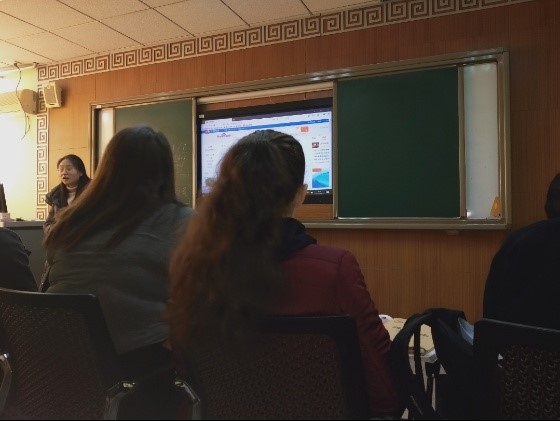
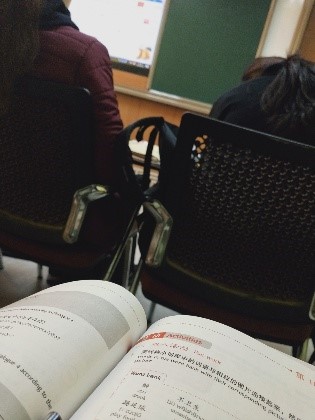
The next lesson was comprehension class, which is our main class in the course overall as we have that four times a week instead of two times a week as we do for the other three classes. The way this class works is for each chapter we will learn a bunch of words and our teacher will go over each one and explain their definition and how to use them; then there will be a written dialogue that we will say aloud to focus on tones; and then we will go over all of the grammar points that are in the text. We do this twice for each chapter as there are two sets of words and two dialogues. After we finish a chapter we will have a test on the words and grammar points. The topic of the chapter we were doing today was travelling during the Spring Festival which was really useful to learn about because we are all planning our holidays right now.
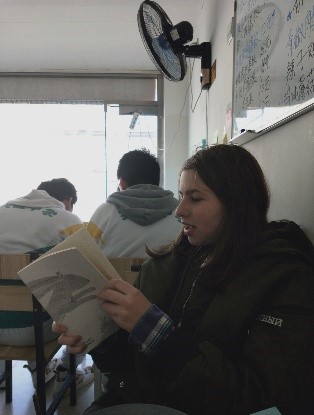
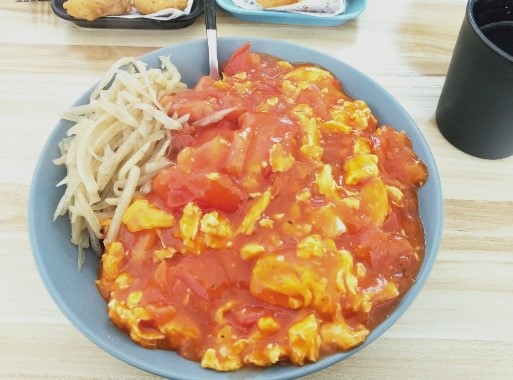
For lunch (午饭wǔfàn), I went to a place called Aunty Peach with one of the other scholars. It is a really small but nice place which is really popular with the local high school students, so you have to get there really quickly after class to beat the rush. I had some rice with tomatoes and egg for only 12 yuan. When I got back from lunch I quickly cleaned up my room a bit and then put a clothes washing, just fun adult stuff. I made an effort a few weeks after we arrived in China to make my room look as nice as possible so it would feel as much like home as possible. Then I sat down and studied (学习xuéxí) for a while. I don’t have any classes in the afternoon, except from Mondays, which means I have to do a lot of self study. We are all expected to do a lot of study in our own time to keep up with the work and to fully learn everything from the classes, for example when we learn a bunch of words one lesson, the next lesson we are expected to be experts on them. I didn’t have a lot to do today as I only had one class the next day which was writing class where we have to memorise a bunch of characters because we have small tests every lesson.
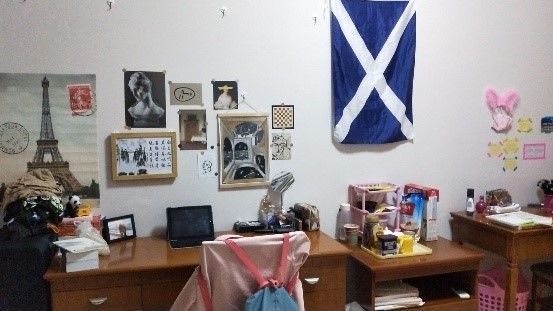
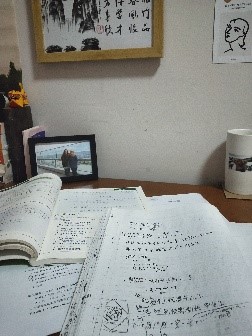
That evening, I went with a bunch of friends to go and see Frozen 2 in the cinema. We cycled to the nearby shaping mall where the cinema was. In China, they have bikes that you simply scan the QR code to ride, a bit like Boris Bikes in London but you don’t need to park them in specific places. That, however, means that the bikes are everywhere which is both very useful, because they are really easy to find, and also really annoying, because sometimes they pile up on the pavements and get in the way. There are lots of different types of these bikes: Mobike, Meituan bikes, Hellobike, WeChat bikes… Cycling is definitely my favourite way of getting around the city. We ate dinner (吃 chī, 晚饭wǎnfàn) in the food court of the shopping mall then went upstairs to the cinema. We watched Frozen in English but it had Chinese subtitles and it was really cool to be able to read some of it. After that I just went back home, finished off a bit of work and then I showered (洗浴xǐyù) and got ready for bed by brushing my teeth (刷牙shuā yá) and washing my face (洗脸xǐ liǎn). I normally get to bed before eleven o’clock at night so I get a good night sleep (睡觉shuì jiào).
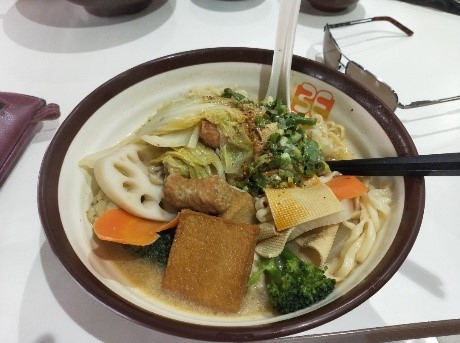
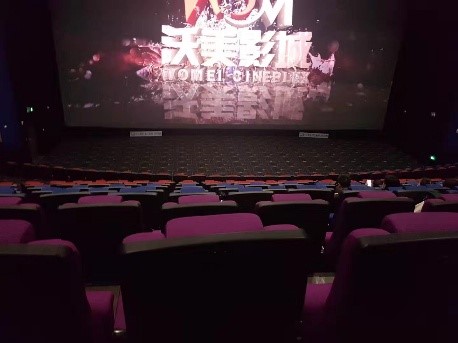
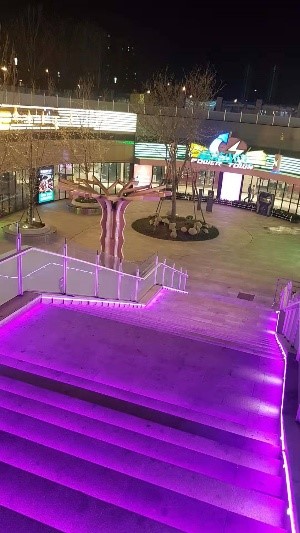
Word Bank:
起床qǐ chuáng: to get out of bed, to get up
吃 chī: to eat
早饭zǎofàn: breakfast
午饭wǔfàn: lunch
晚饭wǎnfàn: dinner
课kè: class
(节jié: measure word for classes (and sections and lengths), i.e. 三节课)
上课shàng kè: to attend class, go to class
下课xiàkè: to finish class
学习xuéxí: to study, learn
洗浴xǐyù: to shower, bathe
刷牙shuā yá: to brush teeth
洗脸xǐ liǎn: to wash the face
睡觉shuì jiào: to sleep
Time Words:
Morning: 早上 Zǎoshang
Midday: 中午 Zhōngwǔ
Afternoon: 下午 Xiàwǔ
Evening: 晚上 Wǎnshang
Then: 然后 Ránhoù
Ordinarily: 平时 Píngshí
Passage:
早上我7:00起床,7:30吃早饭,8:00上课。我有两节课。我11:30下课。中午我吃午饭。下午我学习,没有课。然后我吃晚饭。晚上我洗浴,刷牙,洗脸。平时,我11:00睡觉。
Zǎoshang wǒ 7:00 qǐ chuáng, 7:30 chī zǎofàn, 8:00 shàng kè. Wǒ yǒu liǎng jié kè. Wǒ 11:30 xiàkè. Zhōngwǔ wǒ chī wǔfàn. Xiàwǔ wǒ xuéxí, méiyou kè. Ránhoù wǒ chī wǎnfàn. Wǎnshang wǒ xǐyù, shuā yá, xǐ liǎn. Píngshí wǒ 11:00 shuì jiào.
Using the word bank and time words above, can you translate the passage? By changing the time word, can you write about your own day in the life? (Also, when you learn how to say the time, you could change the times into Mandarin)